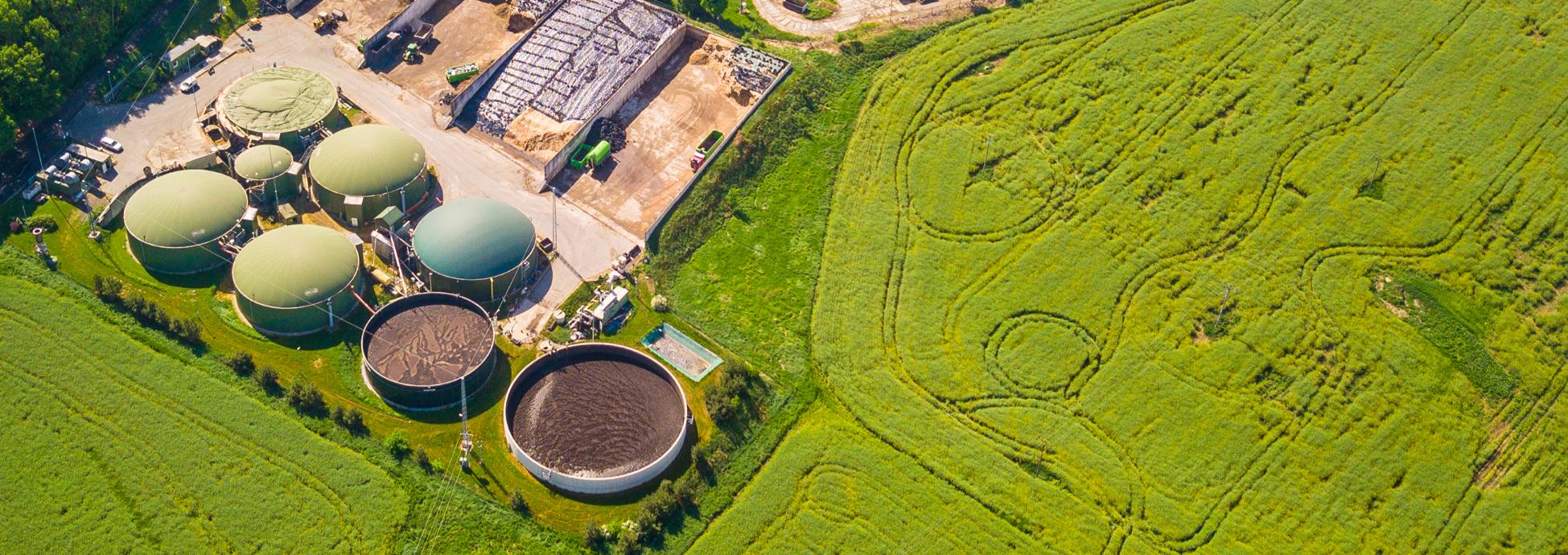
Green-e® Renewable Fuels
Green-e® Renewable Fuels
Biofuels and renewable hydrogen are increasingly becoming a solution for commercial and residential customers who want an effective way to use fuels with lower lifecycle greenhouse gas emissions, and offer pathways to accelerate the transition to a clean energy economy.
In September 2021, Center for Resource Solutions (CRS) launched Green-e® certification for renewable fuels. The Green-e® Renewable Fuels Standard (“Standard”) currently covers for biomethane (also called renewable natural gas or RNG). CRS is actively working to expand Green-e® certification for renewable fuels to include other types of renewable fuels, including hydrogen produced from renewable sources.
Hydrogen is emerging as a cornerstone of the clean-energy economy. It can be produced with little to no carbon emissions, carries high energy density, and provides a practical solution in sectors where direct electrification is challenging such as heavy industry, transport, and chemicals.
For market players, this creates a significant growth opportunity. Their efforts are increasingly centered on shaping new hydrogen markets, securing supply, advancing green-hydrogen technologies for uses like fertilizer production, steelmaking, and shipping, and tapping into government backing as industrial demand for low-carbon feedstocks accelerates.
CRS is developing comprehensive voluntary market standards and rules for renewable hydrogen to ensure buyers of green hydrogen receive renewable hydrogen that is high-quality, verified, and not double-counted. The inclusion of renewable hydrogen in the Green-e® Renewable Fuels program will support market growth and provide assurances of environmental quality and transparency in the voluntary market for renewable hydrogen.
Program Goals
The Green-e® Renewable Fuels program aims to accelerate the adoption of renewable hydrogen, while ensuring that it is created from sustainable renewable resources, that it meets the highest environmental standards, and that customers are protected in their purchase and ability to make verifiable usage claims. Examples of issues related to renewable hydrogen that CRS is exploring include:
- Renewable electricity vintage, geographic considerations, and facility age (for electrolytic hydrogen)
- Use of pipelines
- Carbon intensity
- Various production technologies (e.g., electrolyzers using renewable electricity; SMR using biomethane)
- Other environmental and emissions considerations
Standard Development Process
As a first step, CRS convened a Working Group and an Advisory Group to provide environmental, technical, and market input prior to developing a draft standard for renewable hydrogen and opening of the first public stakeholder consultation on this draft. The Advisory Group was comprised of environmental nonprofit organizations, Green-e® Governance Board members, academic experts, and industry stakeholders. Like all Green-e® standards, development will follow the process described on Green-e® Standard Setting.
Development Timeline Overview
The Standard will be developed over a period of almost 2 years, with 2 open stakeholder comment periods:
- Terms of Reference development: Fall 2023
- First 60-Day Stakeholder Comment Period: Q3 2024.
- Internal review of comments and follow-up with commenters as needed, discussion with advisory committees and Green-e® Governance Board
- Updated draft of the Green-e® Standard created based on stakeholder and Board feedback and Second 60-Day Stakeholder Comment Period: Q4 2024 to Q1 2025
- Review of comments and follow-up with stakeholders as needed, discussion with advisory committees and Green-e® Governance Board
- Final inclusion of renewable hydrogen into the Green-e® Renewable Fuels Standard: Q2 2026
Documents
Standard
Green-e® Renewable Fuels Standard.
The Standard was approved on September 16, 2021 and provides the criteria that Green-e® certified renewable fuel products, renewable gas tariffs and Renewable Fuels Certificates (“RFCs”) must meet.
Version 1.1, August 6, 2025
Notes
- Approved Carbon Intensity Calculation Methodologies: All fuel production facilities used toward Green-e® Renewable Fuels certified sales must calculate a Carbon Intensity (CI) score based on one of the following methodologies, based on the facility’s location. CRS may approve other methodologies at its discretion.
- GHGenius for fuel production facilities in Canada
- California Air Resources Board’s Low Carbon Fuel Standard for fuel production facilities in the USA
- Fossil Natural Gas Carbon Intensity: The Carbon Intensity of fossil natural gas that must be used for demonstrating compliance with Section V of the Green-e® Renewable Fuels Standard is: 9.38 gCO2e/MJ.
- This number is derived from this CA GREET guidance document, referencing the fossil natural gas Recovery and Processing stages.
- CleanCounts Registry. Approved for use toward Green-e® Renewable Fuels certified transactions in Canada and the U.S. “Renewable Thermal Certificates” tracked in CleanCounts refer to the same tradable commodity as “Renewable Fuels Certificates” in the Green-e® Renewable Fuels program.